May 25, 2022 •
Legislature Sends Professional Tax Bill to Governor
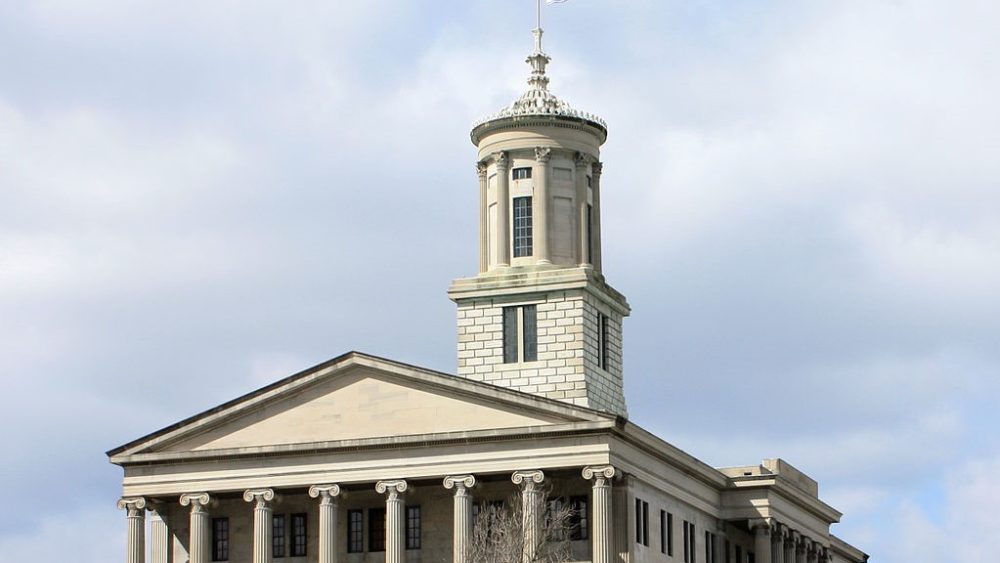
Tennessee State Capitol Building
The Tennessee Legislature passed Senate Bill 884 and delivered it to Gov. Bill Lee this past week on May 18. Present law imposes an annual privilege tax of $400 on registered lobbyists with the state. As introduced, the bill eliminated […]
The Tennessee Legislature passed Senate Bill 884 and delivered it to Gov. Bill Lee this past week on May 18.
Present law imposes an annual privilege tax of $400 on registered lobbyists with the state.
As introduced, the bill eliminated the tax for attorneys, physicians, investment advisors, and lobbyists.
However, as amended and passed, the bill only removes the annual tax for physicians.
The bill becomes effective immediately if signed by the governor or left unsigned for more than 10 days.
October 5, 2021 •
New Hampshire Attorney General Issues Guidance for In-House Lobbyists
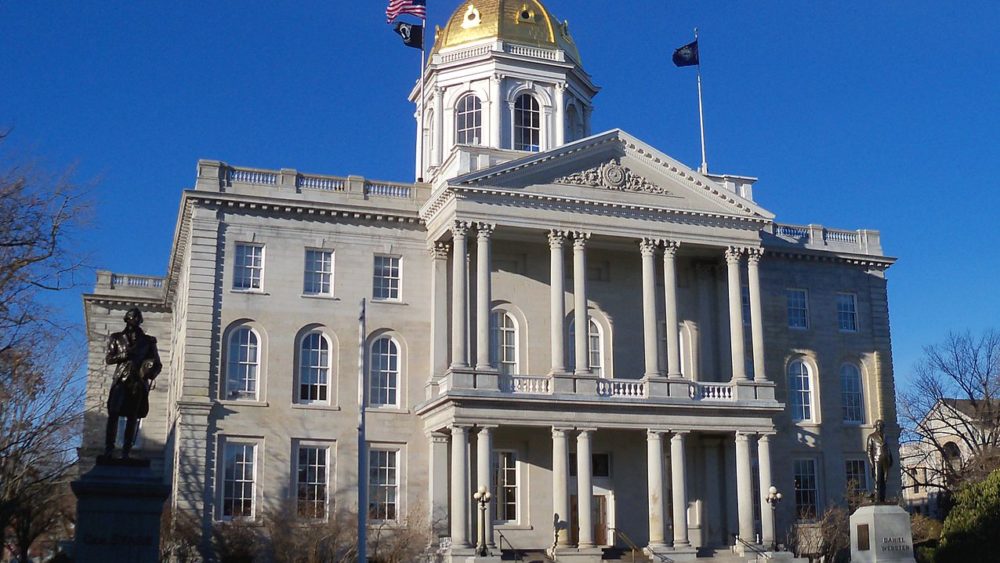
New Hampshire State House - AlexiusHoratius
The New Hampshire Attorney General’s Office issued guidance related to the registration of part-time in-house lobbyists. The office clarified that in-house employees of non-lobbying organizations must register as a lobbyist so long as they engage in some lobbying activities on […]
The New Hampshire Attorney General’s Office issued guidance related to the registration of part-time in-house lobbyists.
The office clarified that in-house employees of non-lobbying organizations must register as a lobbyist so long as they engage in some lobbying activities on behalf of their employer.
These employees will also need to report the portion of their wages attributed to the time they and any support staff spend on lobbying activities.
Additionally, the employee is required to disclose any expenditures made by their employer in connection with the employee’s lobbying activities.
Employees meeting these criteria will need to file Addendum A, the state’s lobbying fees and expenses form, prior to engaging in lobbying activities.
January 26, 2021 •
New Mexico Lobbying Amendments to be Considered During Largely Virtual Legislative Session
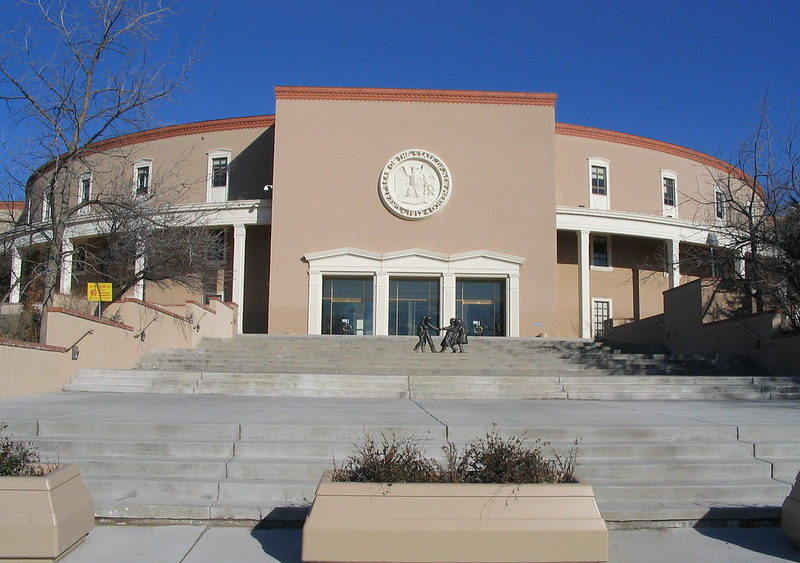
New Mexico Capitol Building - Ken Lund
Greater disclosure requirements for lobbyists in New Mexico will be a topic of discussion during the largely virtual 2021 legislative session. Lawmakers will consider requiring lobbyists or their employers to list the bills they lobbied, the position they took on […]
Greater disclosure requirements for lobbyists in New Mexico will be a topic of discussion during the largely virtual 2021 legislative session.
Lawmakers will consider requiring lobbyists or their employers to list the bills they lobbied, the position they took on each bill, and to report all money spent to influence state policy, including lobbyist compensation.
Additionally, legislation has been proposed to empower the state ethics commission to set the salary of all public officials, including legislators.
Though these types of proposals have failed in the past, open government advocates believe they stand a better chance in a virtual session without lobbyists physically present in the building.
During the virtual session, the public will be able to provide comments online via Zoom or by phone while the Roundhouse remains closed due to COVID-19.
House members will participate in floor and committee debates via Zoom, which will be broadcast publicly online. All legislation considered by the full House will be placed on a temporary calendar for 24 hours to ensure transparency and accessibility.
January 21, 2021 •
President Biden Issues Ethics Executive Order
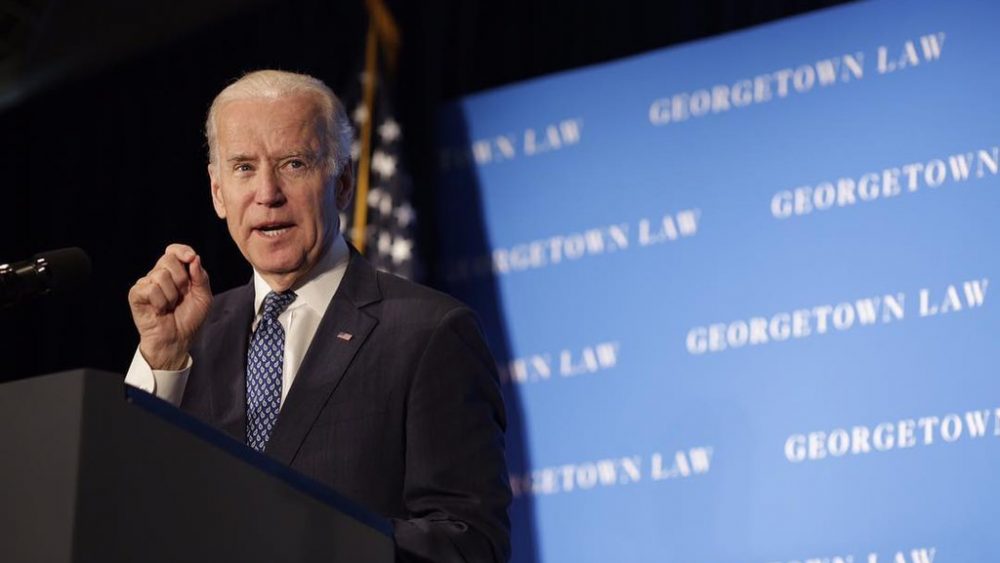
Joe Biden - by The White House, Public domain
On January 20, President Joseph R. Biden signed an Executive Order mandating enhanced ethics rules for executive branch appointees. “Executive Order on Ethic Commitments by Executive Branch Personnel” requires new appointees sign and be contractually committed to the ethics pledge […]
On January 20, President Joseph R. Biden signed an Executive Order mandating enhanced ethics rules for executive branch appointees. “Executive Order on Ethic Commitments by Executive Branch Personnel” requires new appointees sign and be contractually committed to the ethics pledge outlined in the order.
Appointees are prohibited from accepting gifts, with limited exceptions, from registered lobbyists and lobbying organizations for the duration of their service as appointees.
Appointees are also prohibited from participating in matters involving specific parties directly and substantially related to a former employer for two years after the date of appointment. Federal lobbyists and individuals registered under the Foreign Agents Registration Act may not seek or accept employment with any executive agency with respect to which he or she lobbied within the two years before the date of the appointment. The order also prohibits certain golden parachutes from former employers and includes a general two-year prohibition on lobbying after leaving a position.
Covered appointees include every full-time, non-career Presidential or Vice-Presidential appointee, non-career appointees in the Senior Executive Service, and appointees to certain positions excepted from the competitive service. It does not include any person appointed as a member of the Senior Foreign Service or solely as a uniformed service commissioned officer.
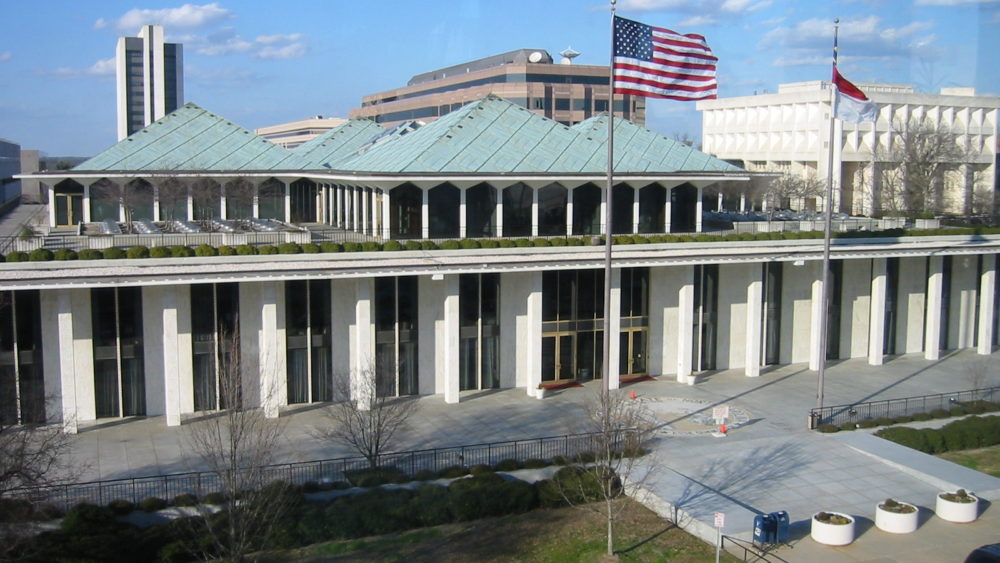
North Carolina State Legislative Building
North Carolina’s General Assembly has extended the legislative session to adjourn sine die on September 3. This extension will allow for consideration of matters related to the COVID-19 pandemic. Registered lobbyists who make an expenditure on legislators and legislative employees […]
North Carolina’s General Assembly has extended the legislative session to adjourn sine die on September 3.
This extension will allow for consideration of matters related to the COVID-19 pandemic.
Registered lobbyists who make an expenditure on legislators and legislative employees will also be required to file monthly reports.
This is the case, as the General Assembly is still in session due to the extension.
Monthly reports are due 10 business days after the end of the month.
In addition, the August report will be due on September 15.
A monthly report for September will not be required as that activity may be incorporated in the Quarterly report due on October 21.
August 17, 2020 •
Illinois Democrats Propose Ethics Reform Bills
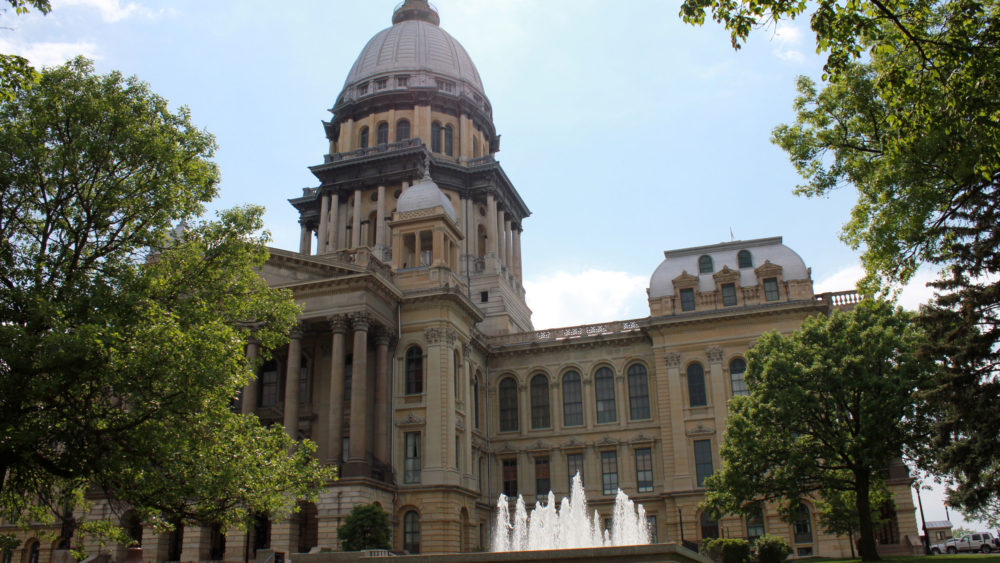
Illinois State Capitol Building
In a virtual news conference on August 13, a group of Democratic lawmakers proposed a package of ethics reform bills. The group’s goal is for the General Assembly to take the bills up during the veto session scheduled to begin […]
In a virtual news conference on August 13, a group of Democratic lawmakers proposed a package of ethics reform bills.
The group’s goal is for the General Assembly to take the bills up during the veto session scheduled to begin on November 17.
Proposals include banning current state legislators from also serving as lobbyists; banning former lawmakers from immediately becoming lobbyists after they leave office; amending the definition of what activities are considered lobbying; and creating official procedures for investigation, censure, and temporary removal of leadership positions for members facing criminal charges.
Republicans asked Gov. J.B. Pritzker to call a special session now to focus on ethics reform, but Pritzker issued a statement indicating he believes these important objectives should be accomplished during this fall’s veto session.
July 2, 2020 •
San Jose Council Approves Ballot Measure Barring Contributions and Gifts from Lobbyists

San Jose City Hall - by Daderot
The City Council approved a November ballot measure relating to contributions and gifts from lobbyists. The proposed measure would bar lobbyists from making campaign contributions. The mayor, council members, and senior administrators would also be barred from accepting gifts from […]
The City Council approved a November ballot measure relating to contributions and gifts from lobbyists.
The proposed measure would bar lobbyists from making campaign contributions.
The mayor, council members, and senior administrators would also be barred from accepting gifts from lobbyists or city contractors.
The mayor and council members would also be required to sit out of any vote involving a person or entity contributing to their campaign or other cause in the last 12 months and the three months following the vote.
The proposed initiative would also give the mayor the power to hire and fire the city manager and department heads starting January 1, 2023.
The measure also includes a provision to align San Jose’s mayoral races with the presidential election cycle in an effort to increase voter turnout.
The City Council will hold a special meeting on July 28 where they will review the proposed ballot language before sending it off to the county Registrar of Voters.
February 13, 2020 •
Federal Lobbyist Bundling Disclosure Threshold Increased to $19,000
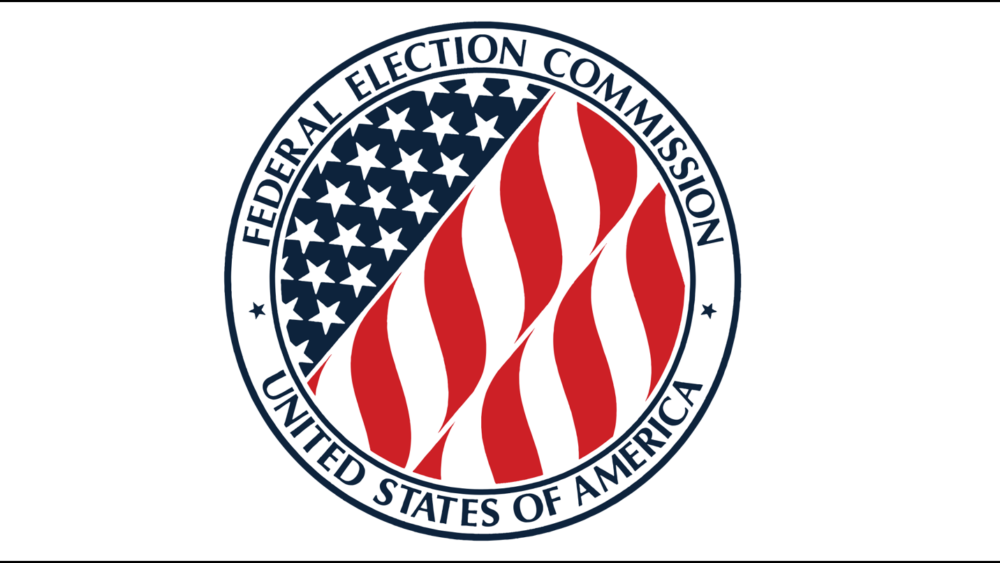
Today, the Federal Election Commission (FEC) published its price index adjustments for expenditure limitations and the federal lobbyist bundling disclosure threshold. The lobbyist bundling disclosure threshold has increased for 2020 from $18,700 to $19,000. This threshold amount is adjusted annually. […]
Today, the Federal Election Commission (FEC) published its price index adjustments for expenditure limitations and the federal lobbyist bundling disclosure threshold.
The lobbyist bundling disclosure threshold has increased for 2020 from $18,700 to $19,000. This threshold amount is adjusted annually.
Federal law requires authorized committees of federal candidates, leadership political action committees (PACs), and political party committees to disclose contributions bundled by lobbyists and lobbyists’ PACs.
Additionally, the FEC published its adjusted Coordinated Party Expenditure Limits for political parties for 2020.
March 6, 2019 •
Colorado Secretary of State to Hold Town Hall on Campaign Reform
Secretary of State Jena Griswold will host a town hall on campaign finance reform from 6:30 to 7:30 p.m. on March 6 in Boulder. Griswold previously announced her policy priorities on January 17, calling for meaningful campaign finance reform by […]
 Secretary of State Jena Griswold will host a town hall on campaign finance reform from 6:30 to 7:30 p.m. on March 6 in Boulder.
Secretary of State Jena Griswold will host a town hall on campaign finance reform from 6:30 to 7:30 p.m. on March 6 in Boulder.
Griswold previously announced her policy priorities on January 17, calling for meaningful campaign finance reform by expanding the “paid for by” disclosure requirements on political advertisements and exercising the Office of the Secretary of State’s audit and enforcement power to act on campaign finance, ballot access, and lobbyist violations.
Griswold is hosting town hall discussions around the state to discuss her campaign finance reform objectives.
February 19, 2019 •
Bill Would Transfer Registry of Lobbyists in Quebec to Lobbyists Commissioner
On February 14, a bill was introduced in the National Assembly of Quebec to allow the Lobbyists Commissioner to maintain the registry of lobbyists. Currently, paperwork filed by lobbyists is processed with the Ministry of Justice. Bill 6 amends the […]
 On February 14, a bill was introduced in the National Assembly of Quebec to allow the Lobbyists Commissioner to maintain the registry of lobbyists.
On February 14, a bill was introduced in the National Assembly of Quebec to allow the Lobbyists Commissioner to maintain the registry of lobbyists.
Currently, paperwork filed by lobbyists is processed with the Ministry of Justice. Bill 6 amends the Lobbying Transparency and Ethics Act in order to transfer responsibility for keeping the registry of lobbyists to the Lobbyists Commissioner.
The bill also creates a three-year statute of limitations for the prosecution of lobbying violations, starting from the time a prosecutor becomes aware of a violation. A prosecution would be prohibited if the commission of the offense occurred more than seven years earlier.
November 16, 2018 •
San Diego Council to Close Confidential Document Loophole
The city council of San Diego voted unanimously to introduce an ordinance providing tighter restrictions on the handling of confidential documents by council members. Following a breach and subsequent criminal probe for information provided to investors by a council member […]
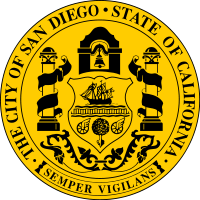 The city council of San Diego voted unanimously to introduce an ordinance providing tighter restrictions on the handling of confidential documents by council members.
The city council of San Diego voted unanimously to introduce an ordinance providing tighter restrictions on the handling of confidential documents by council members.
Following a breach and subsequent criminal probe for information provided to investors by a council member last year, the council voted to close the loophole allowing disclosure if done as a necessary function of official duties.
In addition, new language in the code now makes it illegal for lobbyists who may receive confidential documents from using or disclosing them in any way.
Lobbyists are also prohibited from disseminating a confidential document through intermediaries, such as a spouse or a cousin.
Penalties for lobbyists who illegally review or disseminate confidential documents include potential misdemeanor charges and the possibility of being sued by the city for damages.
August 13, 2018 •
Atlanta City Council Members Introduce Legislation Requiring Lobbyist Registration
Atlanta City Council members introduced legislation requiring individuals and principals seeking to influence legislative or administrative actions of the city to register as a lobbyist. The ordinance would require registration for any effort to influence an approval or veto of […]
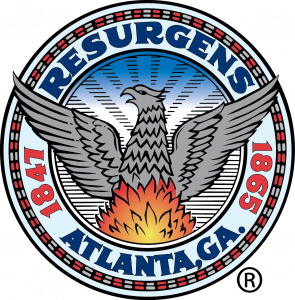 Atlanta City Council members introduced legislation requiring individuals and principals seeking to influence legislative or administrative actions of the city to register as a lobbyist.
Atlanta City Council members introduced legislation requiring individuals and principals seeking to influence legislative or administrative actions of the city to register as a lobbyist.
The ordinance would require registration for any effort to influence an approval or veto of legislation; an agency’s proposal, consideration, or promulgation of a regulation; or the solicitation, award, or administration of a contract.
If approved, the effective date is January, 1, 2019.
August 7, 2018 •
Lawsuit Filed to Remove Issue from Missouri Ballot
A lawsuit has been filed to remove a referendum from the Missouri ballot. On August 2, Sec. of State Jay Ashcroft certified an ethics initiative for the November general election ballot. The proposal would limit legislative gifts from lobbyists, reduce […]
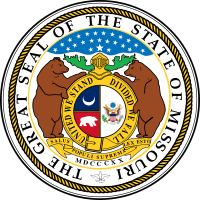 A lawsuit has been filed to remove a referendum from the Missouri ballot. On August 2, Sec. of State Jay Ashcroft certified an ethics initiative for the November general election ballot.
A lawsuit has been filed to remove a referendum from the Missouri ballot. On August 2, Sec. of State Jay Ashcroft certified an ethics initiative for the November general election ballot.
The proposal would limit legislative gifts from lobbyists, reduce campaign contribution limits for legislative candidates, create a two-year waiting period for public officials seeking to become lobbyists, and establish new procedures for redistricting.
The lawsuit claims the proposed referendum violates a provision of the Missouri Constitution limiting ballot measures to a single subject.
Combining multiple subjects in a single ballot measure can force voters to vote for a matter they do not support just to enact a proposal they do support.
July 24, 2018 •
Anti-Corruption Measure to Appear on North Dakota Ballot
After gathering 38,451 signatures, an anti-corruption measure will appear on the November 6 ballot in North Dakota. If the measure is approved by voters, the ethics commission will be responsible for adopting rules related to elections, lobbying, and for reporting […]
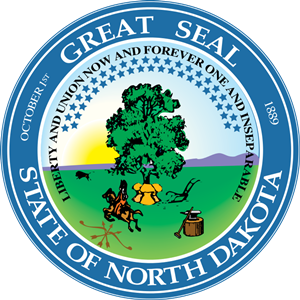 After gathering 38,451 signatures, an anti-corruption measure will appear on the November 6 ballot in North Dakota.
After gathering 38,451 signatures, an anti-corruption measure will appear on the November 6 ballot in North Dakota.
If the measure is approved by voters, the ethics commission will be responsible for adopting rules related to elections, lobbying, and for reporting and investigating alleged violations of those rules and related state laws.
Additionally, the measure prohibits gifts from lobbyists, prohibits the delivery of campaign contributions by lobbyists, and creates a revolving door provision banning public officials from becoming lobbyists for two years after leaving office.
This is the first ballot measure to receive enough signatures to appear in front of voters this November.
State and Federal Communications, Inc. provides research and consulting services for government relations professionals on lobbying laws, procurement lobbying laws, political contribution laws in the United States and Canada. Learn more by visiting stateandfed.com.

